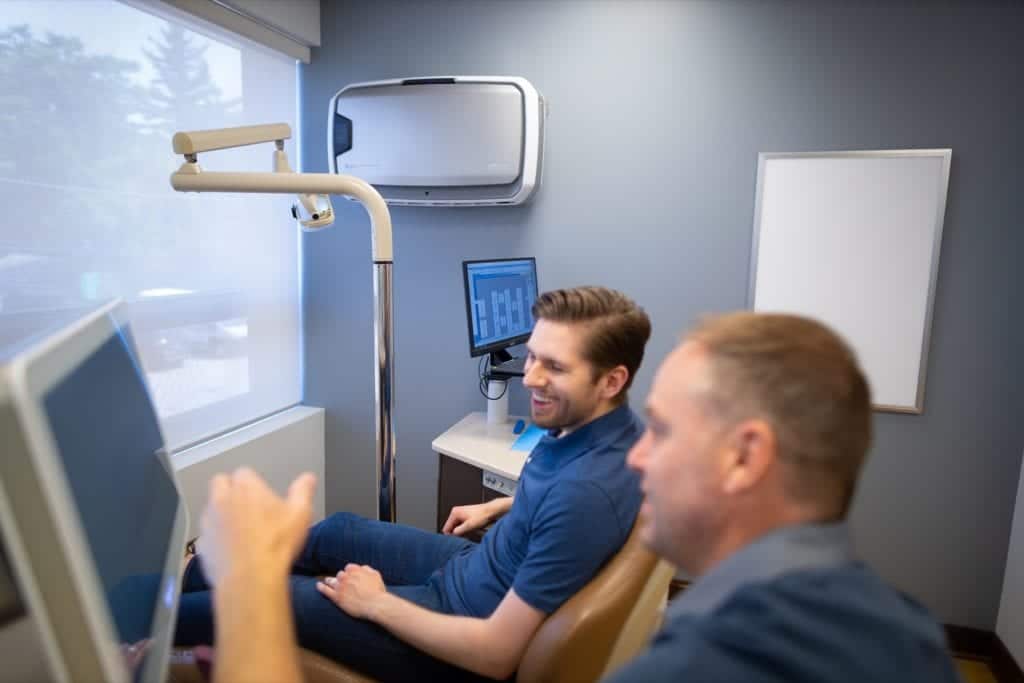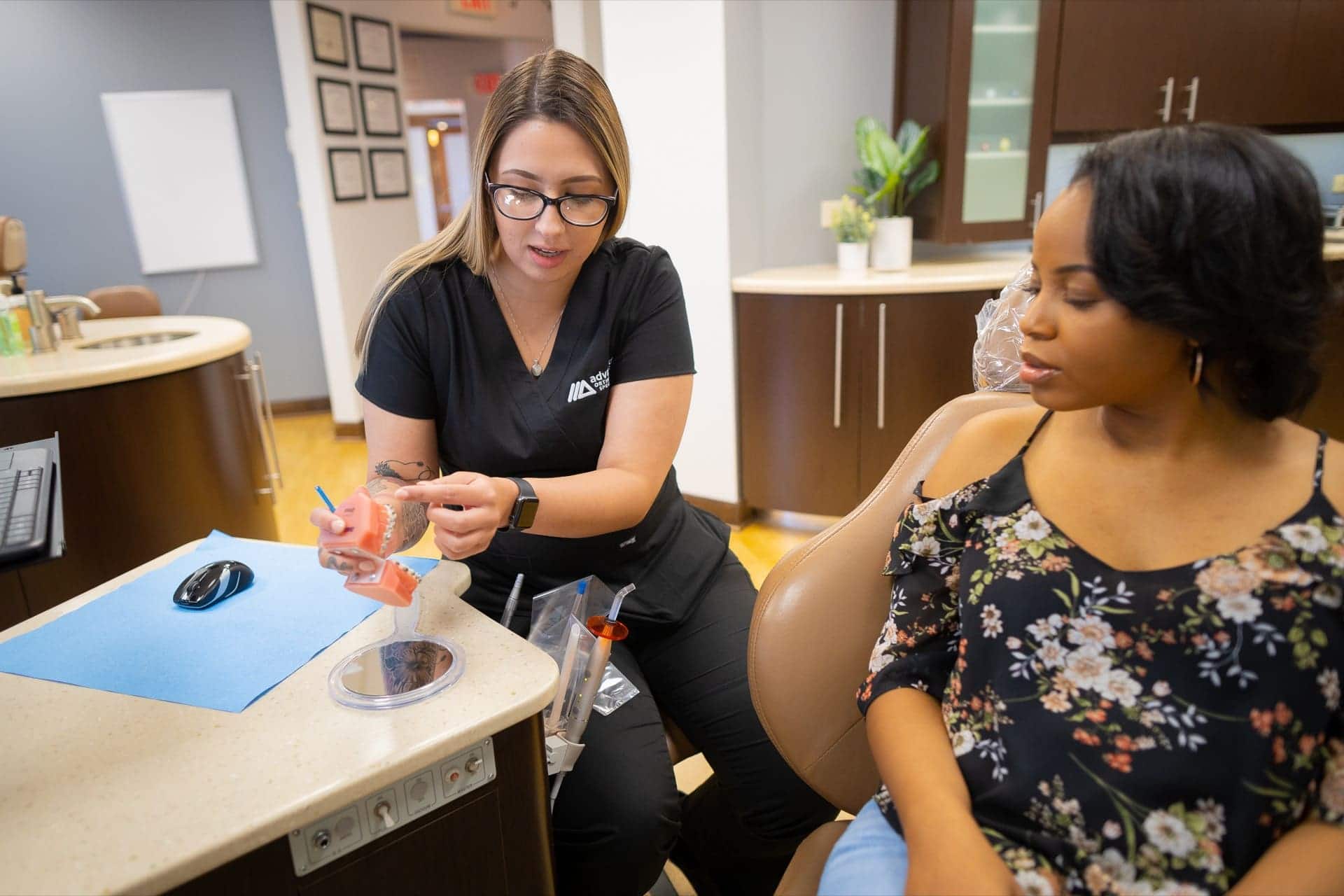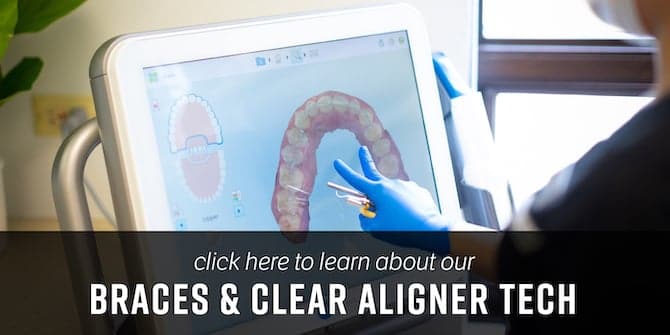


FAQ’s About Orthodontics
How long does treatment take?
While this does depend on your unique case, our treatment times are 30% shorter than the national average! Many patients complete their treatment in less than a year.
Do you accept my insurance?
Yes! We accept any dental insurance and are happy to submit a claim on your behalf.
Will I Need to Wear a Retainer?
After your treatment is complete, you will be instructed to wear a retainer at night indefinitely. This is to help ensure a healthy bite and maintain the new position of your teeth.
Will Wearing The Aligners Affect My Speech?
Like any orthodontic treatment, you can expect a short adjustment period. The more you talk with the aligners on, the faster you will adjust. Hear from our patients how their treatment went.
Does it hurt?
Orthodontic treatment straightens your teeth by applying a gentle, constant force. So it’s normal to feel a little pressure the first few days of wearing a new set of aligners or when starting new treatment.
When should my child see an orthodontist?
The AAO recommends a child be seen by an orthodontist by the age of 7. This gives us the best chance at early intervention.
What are the early symptoms of orthodontic problems?
Crowded teeth, early loss of baby teeth and frequent biting of the cheeks or the roof of their mouth are signs that orthodontic treatment might be necessary.
HAVE MORE QUESTIONS? CONTACT US TODAY!
We are happy to answer any questions you might have.
Meet Our Team
Our team of expert doctors and trained professionals is dedicated to creating a safe and fun atmosphere for everyone who walks into our office. Behind each unique smile is a special person with a story to tell. We value getting to know the story of each and every patient before we begin treatment.
We take pride in our cutting edge technology, qualified staff and empathetic approach to treatment. Our focus is placed on the patient as a person, not a means to an end. When you are here, you are cared for.








